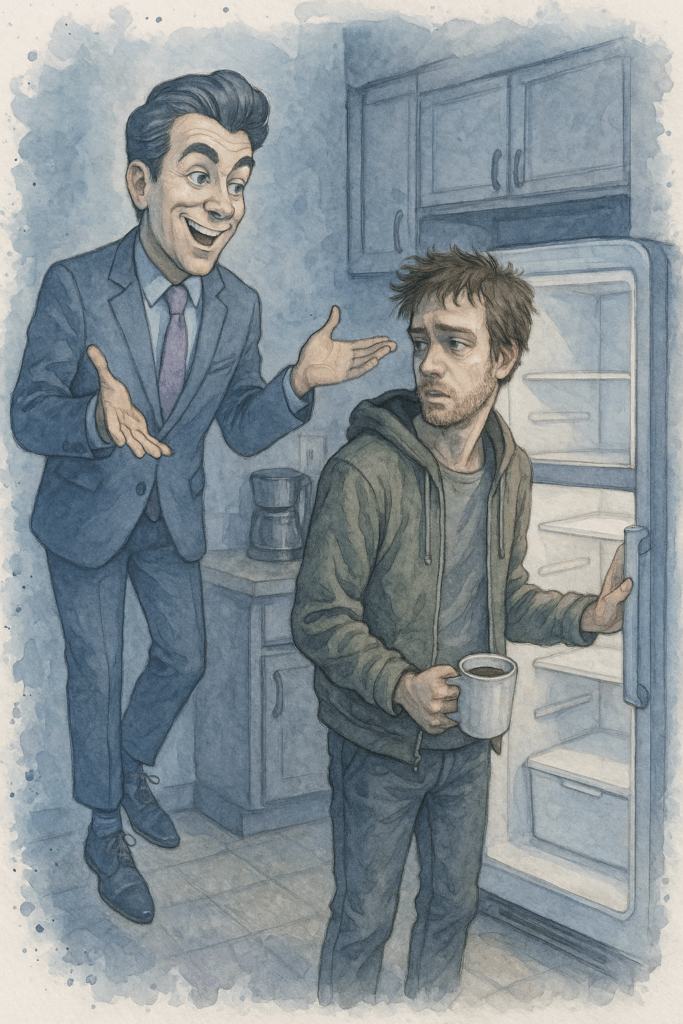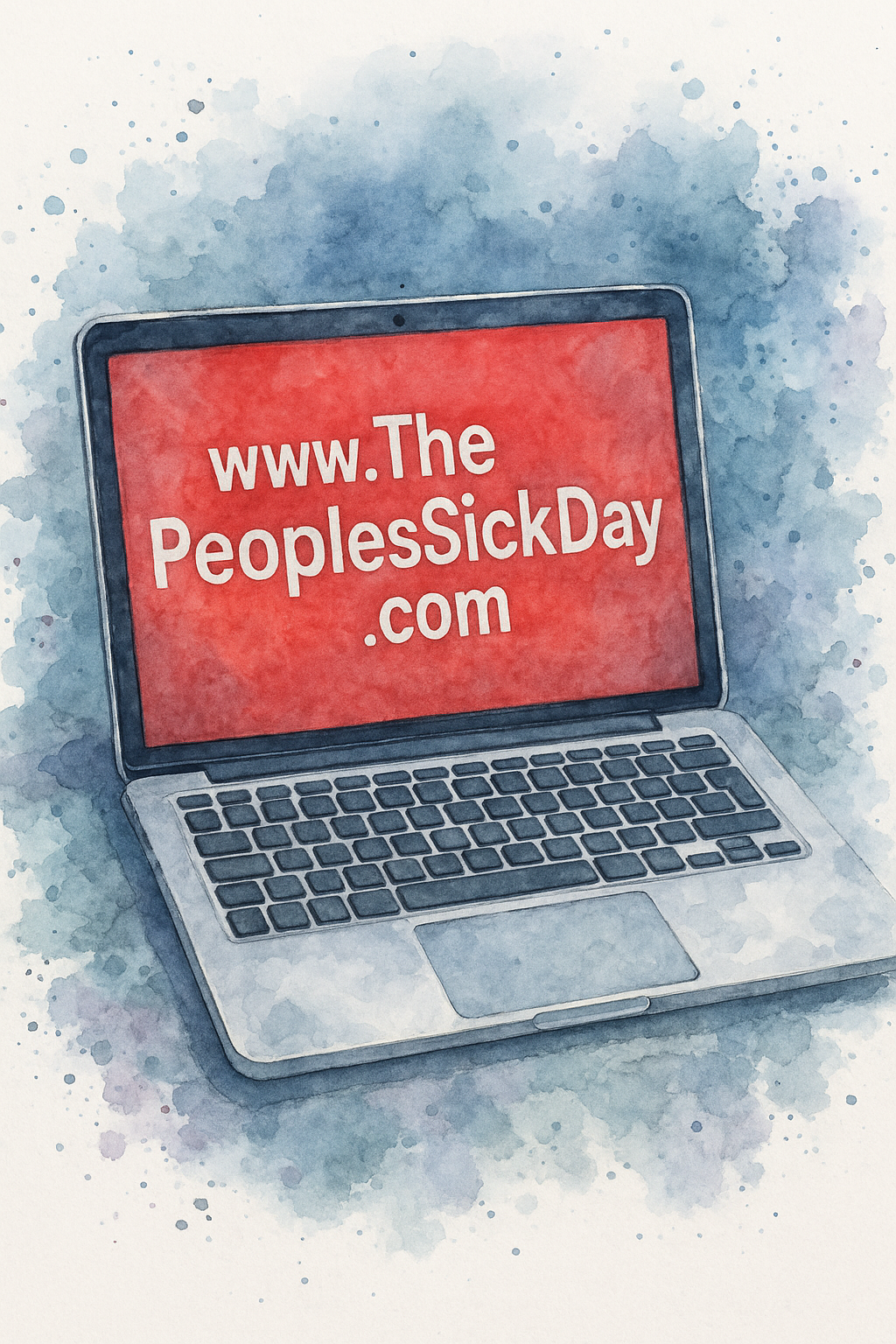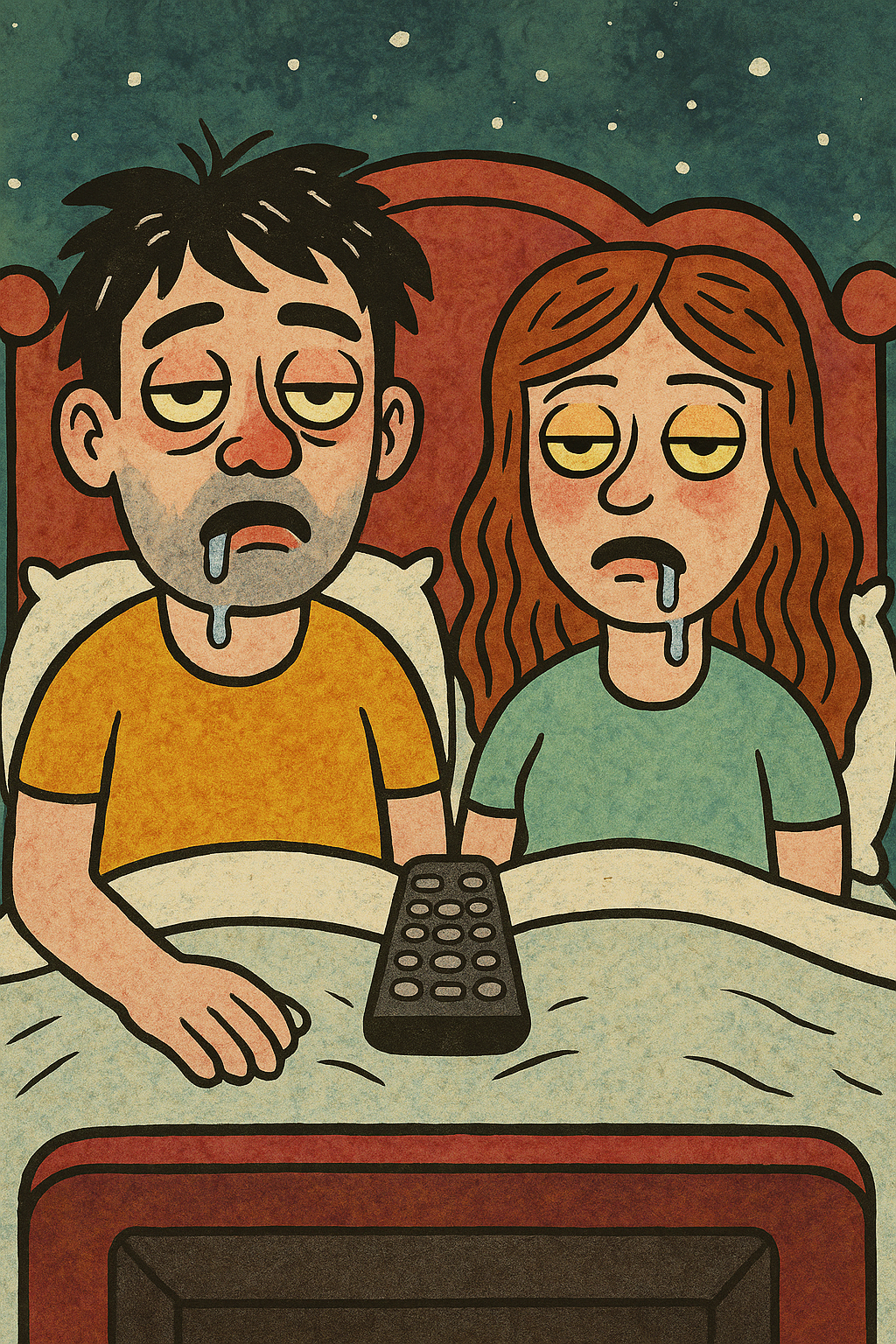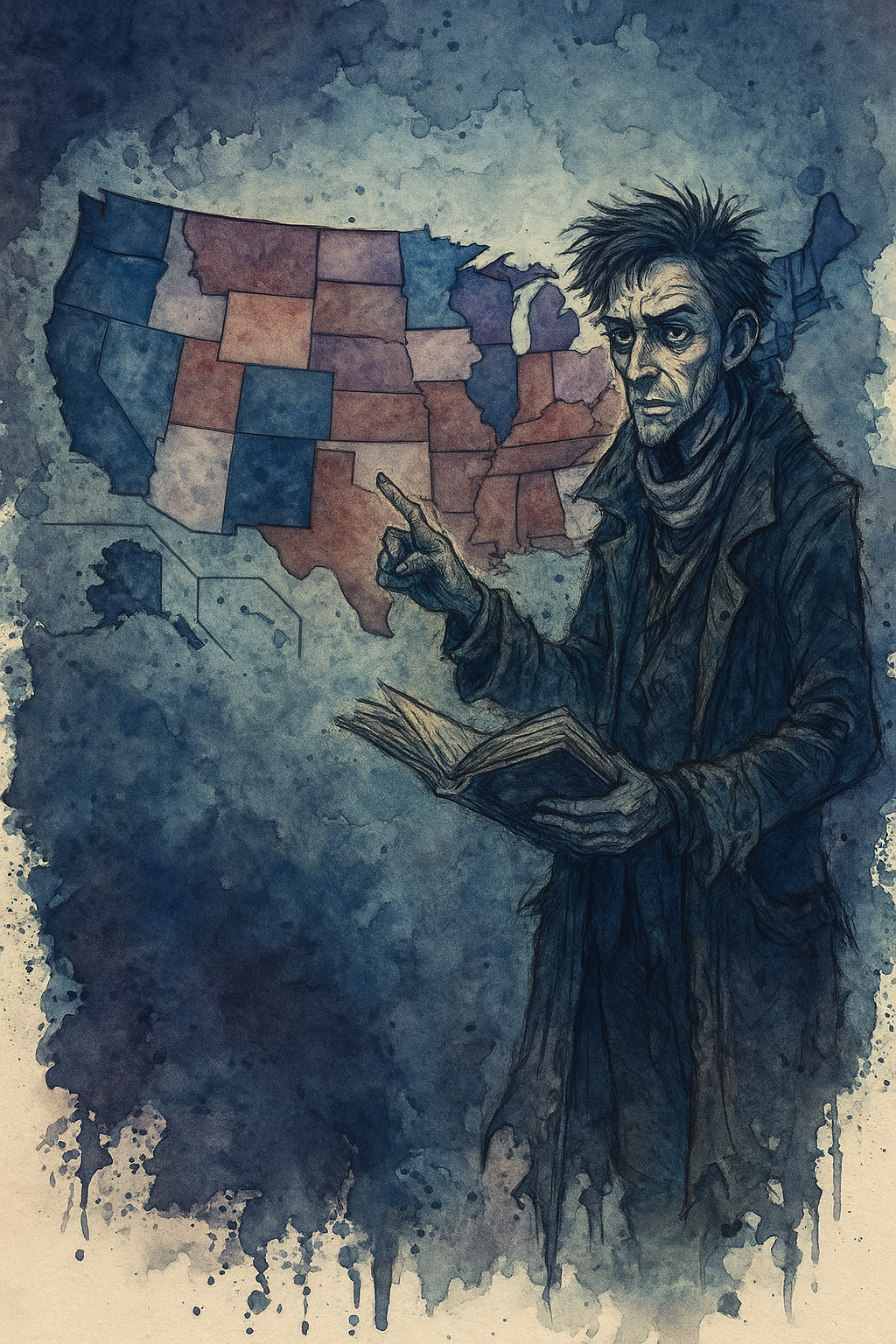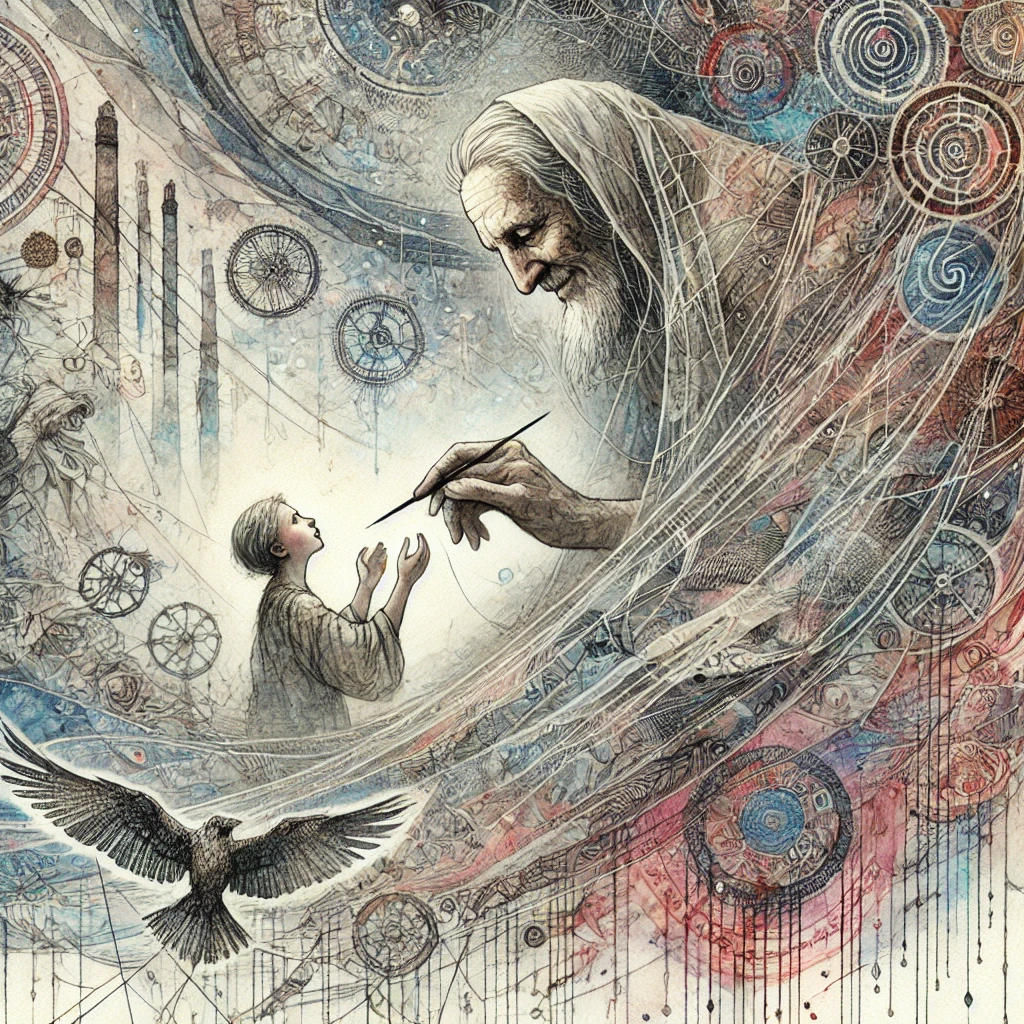When Rest Becomes Revolution
What Happens When Millions Say “No” to Work?
Picture it: Millions of people wake up, look capitalism in the eye, and say, “Not today, Satan. I’m sick—and it’s not the flu, it’s you.”
This is the glorious premise behind The People’s Sick Day—a grassroots movement bubbling up across TikTok, Facebook, and Discord like a collective middle finger made of chamomile tea and rage naps. It’s a simple, seismic idea: rest is resistance. And burnout? Weaponized.
The Plan: A Sick-Out With Purpose
Per their site (thepeoplessickday.com), here’s the soft-anarchist magic trick:
- Everyone calls in sick. Ideally for three days.
- No work. No spending. No productivity rituals disguised as self-worth.
- Just strategic, unapologetic absence.
It’s not laziness. It’s economic disobedience—like a “sneak attack” but with more pillows and fewer Molotov cocktails. A labor disruption powered by stillness. A protest so quiet it echoes.
The goal? Shake the foundation of a system that treats human bodies like renewable office supplies. Demand change where it hurts: the profit margin.
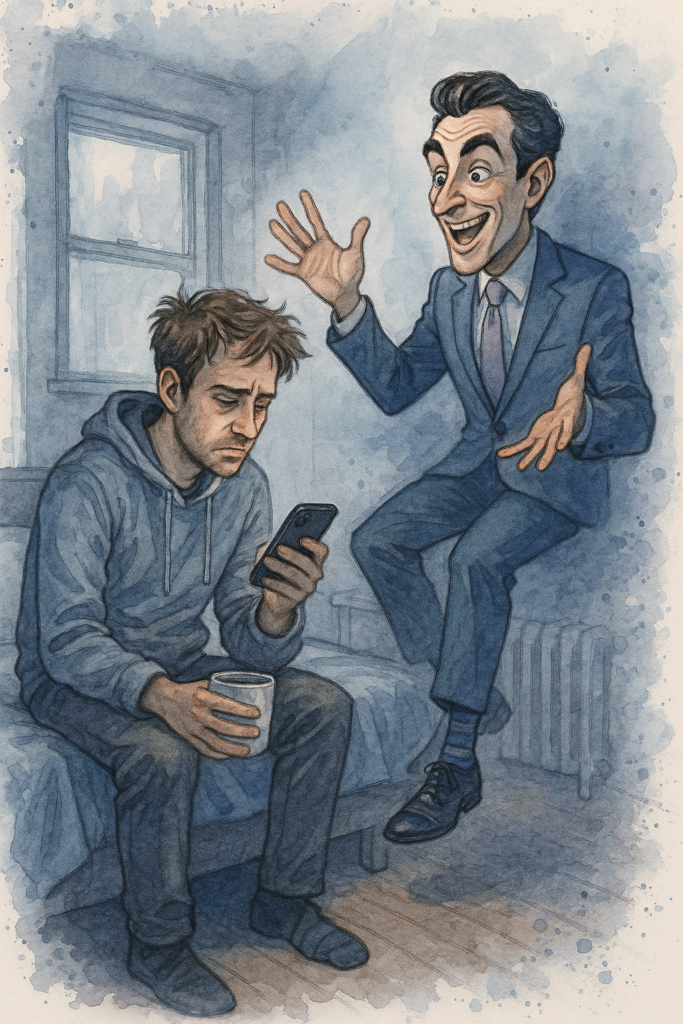
The Reason: When the System Is Sick, Rest Is a Cure
Psychology has been screaming this for decades: a system that punishes rest is a system begging for collapse. This movement says it out loud, with the collective hoarseness of the overworked.
America’s grind culture rewards burnout like it’s a sacrament. It glorifies pushing through flu symptoms, romanticizes 80-hour work weeks, and sneers at anyone who prioritizes their mental health like they’re weak instead of wise.
What The People’s Sick Day does is flip that script. Instead of normalizing overwork, it turns rest into protest. And research backs it up: workplaces with paid sick leave aren’t just more humane—they’re more productive, less contagious, and marginally less soul-sucking.
What Makes This Different?
It’s not a union-led strike (though the unions are watching like hawks with clipboards). It’s not a march. It’s a decentralized, meme-powered ghost strike—the kind of thing capitalism never sees coming because it can’t fathom coordinated softness.
Yes, there are risks. Some folks can’t afford to skip a shift. Others fear retaliation. But when everyone disappears at once, targeting becomes a game of economic whack-a-mole.
The deeper question is this: Why is rest revolutionary? Why is basic self-preservation treated like sabotage?
How You Can Participate
- Take the Sick Day – If you can, step away on the designated days (TBD—watch their Discord and website).
- Talk About It – Online, anonymously or not. Use the hashtags. Spread the word like it’s flu season and justice is airborne.
- Support Others – Mutual aid, advocacy, signal-boosting. Especially for those who can’t risk a day off.
- Interrogate Reality – Ask why your right to breathe and rest feels like a radical act.
Final Thoughts From the Looking Glass
At the Cult of Brighter Days, we like to say: If you can’t be kind, be nice. If you can’t be funny, shut up. But if you can’t shut up? Go away.
This movement says: Let’s all go away—together.
Not to disappear, but to reclaim our bodies and burn out the system instead of ourselves. Call in sick—not because you’re broken, but because the system is. Because sometimes, the most subversive thing you can do…
…is rest.
